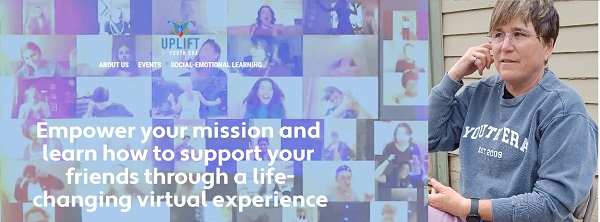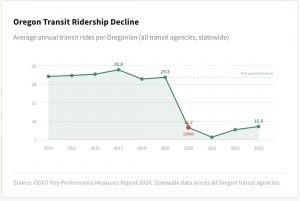Peers on the front lines: Our teen suicide emergency
4 min read
Teen suicide is a national health emergency. One Eugene nonprofit offers youth peer training. Speaking with students at Network Charter School, Maj Bonnet:
[00:00:10] Maj Bonnet: One of the goals of Uplift is to teach youth what to do if one of their friends is having a problem, like a severe mental health problem, like with suicide. Has any friend of yours ever told you that they were thinking about suicide?
[00:00:23] Network Charter School student: Most definitely. Yeah. I think I’ve had to deal with that too many times to count, I’d say about 15.
[00:00:31] Maj Bonnet: So you might be one of the people, there are certain people that everyone talks to. Are you the person that your friends all lean on?
[00:00:38] Network Charter School student: Yeah. I’m like the friend that hasn’t been in the relationship, but gives the right relationship advice. People just think that I’m a good person to go to.
[00:00:47] Maj Bonnet: Sounds like you are. But what’s that like for you? Is it scary?
[00:00:52] Network Charter School student: For sure. If I say something wrong it’s on me, it feels like, and I don’t know what to say or how to be there for that person. And each person is different, ‘cause I can’t just be there for one person and say something, and then say the exact same thing to another person, ‘cause it’s totally different.
[00:01:10] Maj Bonnet: And who do you talk to after those, ‘cause counselors have this whole process of what to do, after hearing something really traumatic and scary and terrible. What do you do after those conversations? Who do you lean on?
[00:01:22] Network Charter School student: No one, or other friends. Like, if it’s a mutual friend, I’m not going to go out and say that, because it’s personal, you know? But I’m just going to be like, ‘I’m worried about this friend,’ just to make sure that everyone else is keeping an eye open, you know? Like if there’s a little thing that seems off, just caring for them a bit more than you would any normal day, because they seem to need it a bit more, you know?
[00:01:53] I’ve asked my therapist a number of times: ‘What is something, like, what is the best way to handle this? What is something that I can say, how do I, like, what do I do?’ It was more, ‘Just do whatever you can in the moment to just remind them, Don’t invalidate how they feel, but remind them that it’s only temporary,’ you know?
Because that’s something that got me through a lot of my suicidal ideation was I felt like it was permanent and how I feel is never going to change and I can’t get over that.
[00:02:30] And for a lot of people it might be like that, you know? But, there’s still little things like I, a lot of the time the friends that would tell me they wanted to do that were laughing with me earlier that day and having fun, and it didn’t seem like they wanted to earlier.
[00:02:43] And so it’s just, ʻI really enjoy laughing with you and being with you, and these are the things that you are capable of and you are great and amazing in these ways and things are bad and I see that and what are ways that I can help you in that situation.ʻ You know: ʻHow can I make things better for you right now so that it can be better later on?ʻ
[00:03:05] Maj Bonnet: It sounds like you’re a natural, which is why people do talk to you, and that can be really hard to be the person holding all of that alone, you know, without somebody holding you, you know, holding space and safety and support for you.
[00:03:23] You know, like, because if one of those friends actually completes suicide and you didn’t know where to go, that’s a really hard thing to hold.
[00:03:31] John Q: Oregon youth 14 to 19 can attend peer training June 27-30 for free. That’s Tuesday through Friday the last week of June, from 11 a.m. to 3:30 p.m.
[00:03:43] Maj Bonnet: It’s designed for people who have yet to have the conversations and want to know what to do, or who are already having the conversations, or who had them, and wish it had gone differently.
[00:03:53] It’s not like a class that’s taught in school, not yet. And so I want to get it in front of any youth who wants it.
[00:04:01] We just had a suicide over spring break in Eugene of a middle schooler. Just because somebody’s a middle schooler doesn’t mean they’re not serious about suicide. And people get that wrong a lot. They think it’s serious for high school students, but, like, somebody in sixth grade? But youth have completed suicide as young as six or seven years old. It’s not as common, but it can happen.
[00:04:25] John Q: Peer training starts June 27: Register online at UpliftPeers.com.







